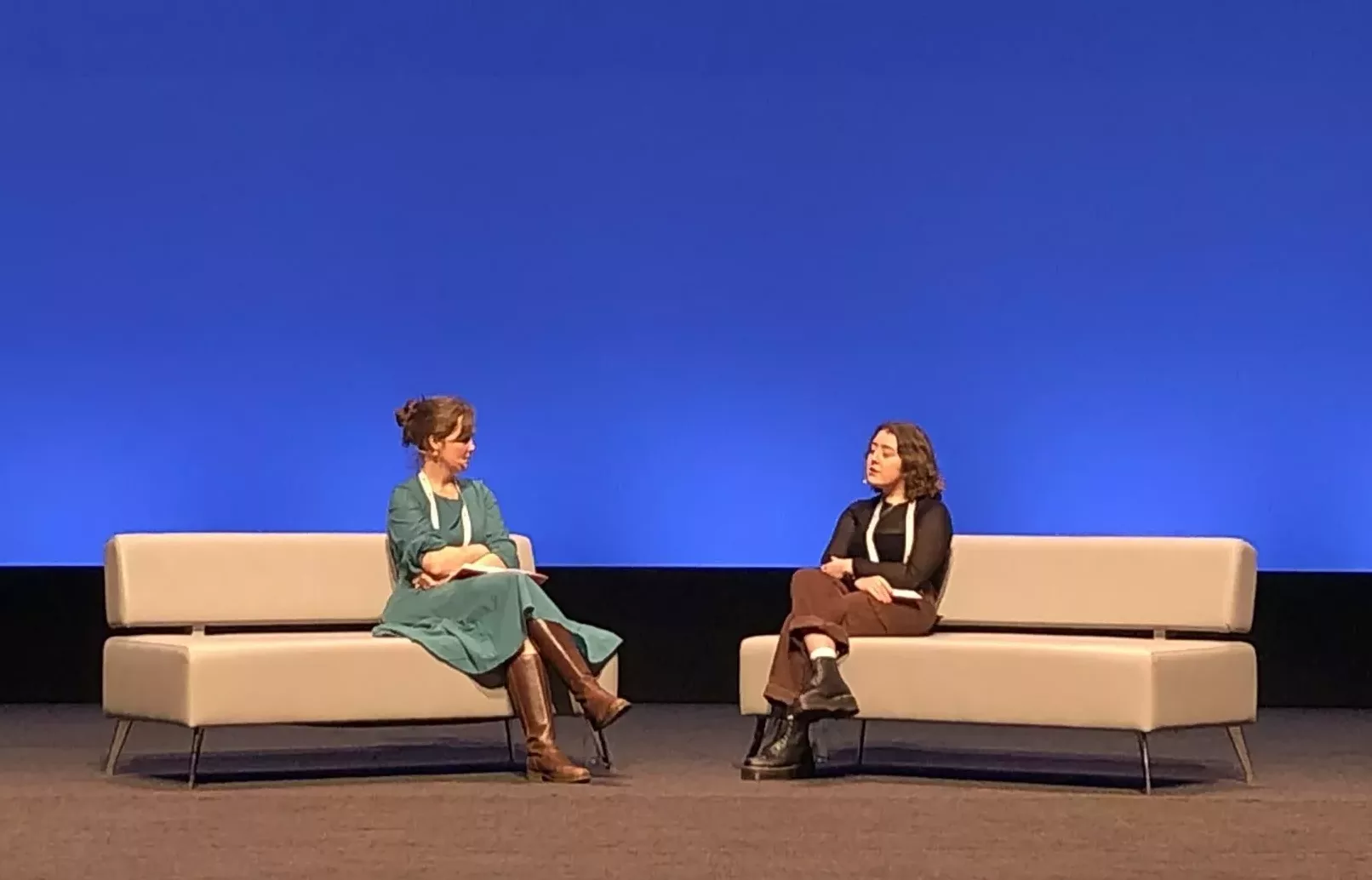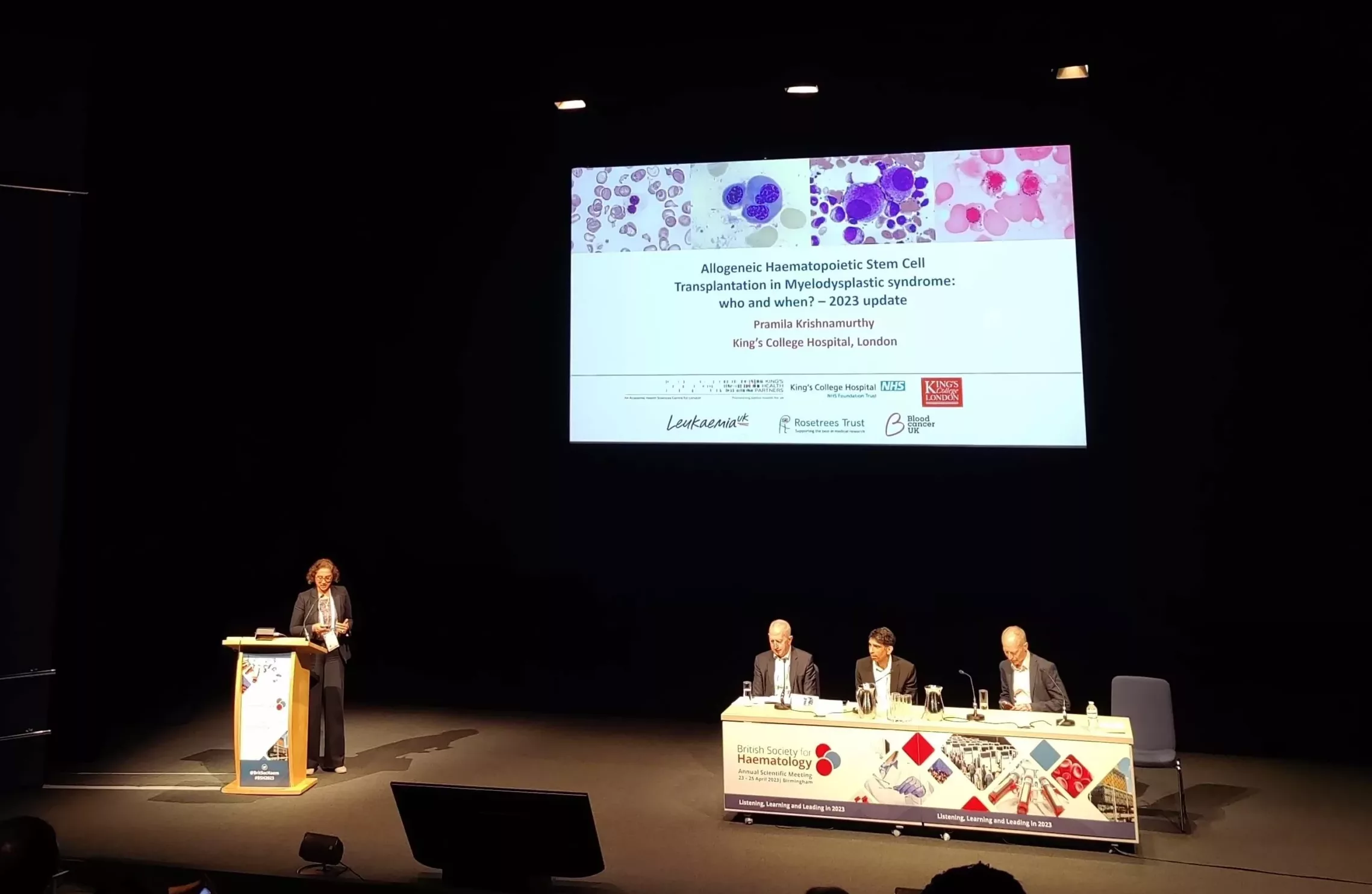
15 May 2023
BSH 2023: Blood cancer from the patient’s perspective, the need to address inequalities, and why research matters
Last month, the Research & Advocacy team at Leukaemia UK attended the British Society for Haematology’s (BSH) annual conference in Birmingham. This was a great opportunity for Leukaemia UK to engage with industry experts, healthcare professionals, and other blood cancer charities.
Over the course of the three-day event, we attended a range of different talks, abstract discussions, and poster presentations. We’ve highlighted three themes from this year’s conference: the unique experience of blood cancer patients, inequalities in treatment, and the importance of research – and have delved into some of our key takeaways from the event.
The unique experiences facing blood cancer patients
A clear takeaway from this year’s conference was how each blood cancer patient faces unique challenges when receiving their diagnosis, treatment, and care. We heard from the perspectives of blood cancer patients across the life course, including a young adult receiving treatment for leukaemia, to a specialist myeloma haematologist who received his own diagnosis during his working life.
Chloe Rouse, an acute lymphocytic leukaemia (ALL) patient, discussed her experiences of receiving a diagnosis as a child and then subsequently as a teenager after she relapsed seven years later. Speaking with her haematologist at the event (Dr Lindsay George), Chloe discussed the differences between being treated as a paediatric patient and as a teenage and young adult (TYA) cancer patient.
Peer-to-peer support can be beneficial for TYA patients
While TYA patients face a number of psychosocial challenges, Chloe highlighted that as a TYA patient, she received tailored information specific to her cancer care that enabled her to have a better understanding. She also acknowledged that peer-to-peer support and communication has been vital during her second treatment phase.

Looking at the experiences of older adults, Dr Salim Shafeek spoke about receiving a myeloma diagnosis while treating myeloma patients as a haematologist. “My illness made me a better doctor and human being,” argued Dr Shafeek, who said his own blood cancer experiences allowed him to engage with his patients better once he was back at work.
“My illness made me a better doctor and human being.”
Going from the haematologist to the patient also meant he had to take on board advice from his very own patients, who helped him enormously on his cancer journey. Through his experiences, Dr Shafeek helped to establish the Worcestershire & Herefordshire Myeloma Support Group with Myeloma UK.
Addressing inequalities in blood cancer treatment and care
Highlighting inequalities in blood cancer diagnosis and treatment was also a key topic at this year’s conference. In collaboration with the University of Hertfordshire, the Blood Cancer Alliance (BCA) produced and showcased a poster revealing the barriers facing Black and minority ethnic blood cancer patients. Their research finds that blood cancer patients from minority ethnic backgrounds reported poorer experiences of care compared to patients from White backgrounds. Patients from minority ethnic backgrounds reported poorer experiences in relation to:
- Overall blood cancer care
- Waiting times
- Understanding their health condition
- Involvement in health decision making
- Aspects of personalised care
Given these constraints, better consideration of ethnicity and culture in treatment has been highlighted as an important part of providing patient-centred care. BCA acknowledges that more research with patients from distinct minority ethnic communities is needed to understand these disparities further, and to help support the co-production of actions aimed at narrowing the care experience gap.
The importance of research
On the final day Leukaemia UK’s very own John Goldman Fellow, Dr Pramila Krishnamurthy, delivered an excellent presentation on the benefits of using stem cell transplants for patients with myelodysplastic syndromes (MDS). Dr Krishnamurthy’s presentation provided a comprehensive overview of who and when to transplant – highlighting the patient, disease and donor factors that need to be taken into account. The presentation also shed light on predicting and preventing relapse and the challenges to consider along the way.

By listening to the needs of patients, addressing inequalities in diagnosis and treatment, and pioneering blood cancer research, there is a real opportunity to improve the lives of people affected by leukaemia. The 2023 BSH conference provided Leukaemia UK with a fantastic chance to strengthen its values of being curious, collaborative, and bold: we listened to the experts, engaged with fellow charities, and have come away with a better understanding of the current themes across haematology that can be used to accelerate leukaemia research and strengthen our policy goals.
Patrick Swain, Leukaemia UK’s Policy & Advocacy Manager
Related posts
20 October 2023
Emerging leaders accolade for former Leukaemia UK John Goldman Fellows
Former Leukaemia UK John Goldman Fellows, Dr Matthew Blunt, University of Southampton and Dr Konstantinos Tzelepis, University of Cambridge have been recognised as ‘Emerging Leaders in Leukaemia’ by the major…
18 May 2022
World Blood Cancer Day interview with Dr Pramila Krishnamurthy
On 28th May the global blood cancer community comes together to mark World Blood Cancer Day, this campaign calls for support of those with blood cancer and encourages people to become stem cell donors.
16 November 2022
Cost of Living with Leukaemia Fund launches
Leukaemia Care and Leukaemia UK have launched a new financial support service, the Cost of Living with Leukaemia Fund, in response to the cost of living crisis in the UK….
24 September 2021
Leading leukaemia charities call on Rishi Sunak not to cut financial lifeline for blood cancer patients
Leukaemia Care, Leukaemia UK and Leukaemia and Lymphoma Northern Ireland, have written to the Chancellor urging him to realise the devastating impact the end of the Coronavirus Job Retention Scheme will have on the clinically extremely vulnerable (CEV).